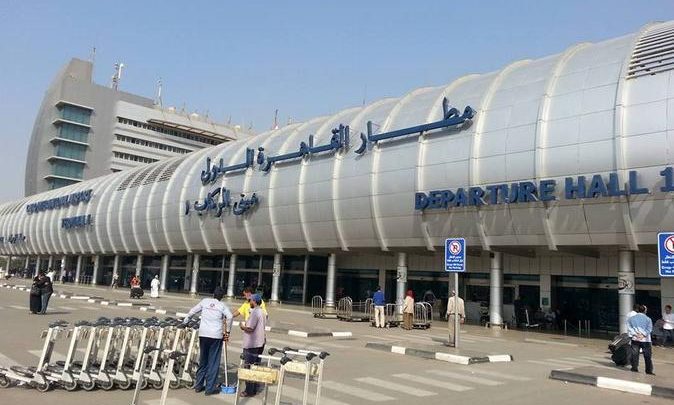African airports and aviation headwinds during recovery
July 4, 2022983 views0 comments
BY EKELEM AIRHIHEN
The aviation industry, no doubt, remains on track to recovering from the effect of the pandemic. The Airports Council International in its statement of June, 2022, expects the global passenger traffic to improve significantly in 2022. It is expected to reach 77 percent of what it was in 2019. Traffic for 2022 is forecast to total 7.1 billion passengers globally.
Africa is expected to continue to recover in 2022 and is expected to reach 72 percent of 2019 levels by end of the year. This will be an improvement from 51.6 percent of 2019 level in 2021. It states further that Africa will remain part of the highly impacted regions due to reliance on international traffic. A full recovery to 2019 levels is expected in mid- to late 2024.
Read Also:

Overall recovery is expected to be driven mainly by the recovery of domestic passenger traffic. In 2019, domestic traffic accounted for 58 percent of passenger traffic. Global domestic passenger traffic is forecast to reach 2019 levels in late 2023 at which 2023 full year traffic will be at par with 2019.
Global international passenger traffic will, on the other hand, reach 2019 levels by the second half of 2024 with full year recovery to 2019 levels taking place in 2025.
With restrictions easing, the Nigerian Bureau of Statistics shows that 13 million passengers passed through Nigerian airports in 2021, up from nine million recorded in 2020. Phillips Consulting in its June, 2022 Aviation Newsletter stated that the Nigerian Aviation Sector recorded negative growth of 36.98 percent in 2020 from a GDP growth of 13.2 percent in 2019 due to air travel restrictions in March, 2020. With reversal in travel restriction, the aviation sector grew by 19.7 percent in 2021, returning to its pre-pandemic growth level.
There are three major factors listed by Phillips Consulting as shaping the global airline industry recovery. These are: The continuous relaxation or elimination of travel restrictions, a very significant rebound in air travel and passenger traffic (referred to as “revenge” travel by some; the unleashing of pent-up travel demand); and the recent surge in fuel prices are likely to become a threat to the recovery in demand.
ACI lists some significant headwinds faced by the industry as geopolitical conflicts, higher inflation, the risk of economic downturn, supply chain disruptions, labour shortages and potential new outbreaks. African aviation will and is already being impacted by these headwinds. Navigating through them will be of utmost priority for all industry stakeholders.
Recently, Air France announced it was pulling out of Liberia (dw.com – Why Africa is home to the world’s worst airports). One of the reasons was the turning tide in the geopolitical conflict in Mali. The challenges from the Russia–Ukraine conflict have continued to impact African aviation with rising fuel costs being one major headache.
At the 78th IATA AGM and World Air Transport Summit held in Doha, Qatar, IATA reportedly disclosed that inflation, interest and exchange rates would affect the growth of the aviation industry globally and so it should learn lessons from the Covid-19 pandemic. It was further reported that Nigerian and other African airlines will lose $700 million in 2022 stemming from the Russia- Ukraine conflict and the pandemic.
While the Russia–Ukraine conflict is not expected to escalate beyond their borders, rising fuel costs and dampening demand as consumer sentiments decline have a negative effect on aviation. Heavy weight cargo are areas where Russia and Ukraine are market leaders. This will be impacted by the crisis. The ACI report refers to the IMF report stating that: “High inflation levels are contributing to this global slowdown. Energy and food prices have increased rapidly, disproportionally impacting low income countries.”
The IMF reports that global growth is expected to moderate to 3.6 percent in 2022 and 2023. This is a decrease by 0.8 and 0.2 percentage point, respectively, from its forecast in January, 2022.
Africa has always had to grapple with the challenge of insufficient training and capacity, as well as an exodus of skilled manpower in its aviation industry. The chief executive of Qatar Airways stated recently that the labour shortage facing the global aviation industry will remain an issue for some months. Airport staff require not just skills but security clearances due to the nature of the industry. These are challenges African aviation will have to grapple with in the short and medium terms.
Many countries continue to fall well short of the commonly recognized threshold for herd immunity, says the ACI report. It recommends that targeting countries with low vaccination rate is especially important to prevent the risk of new waves and formation of new variants. This is where airport stakeholders in Africa need to collaborate across all touchpoints in the passenger journey and with joint strategic planning to grapple with this risk.
African airports will have to engage in scenario planning in the face of these uncertainties and fathom them into their budget and other plans in the short and medium terms.
Ekelem Airhihen, a chartered accountant, is an airport customer experience specialist. He can be reached on ekyair@yahoo.com and +2348023125396 (WhatsApp only)
business a.m. commits to publishing a diversity of views, opinions and comments. It, therefore, welcomes your reaction to this and any of our articles via email: comment@businessamlive.com
